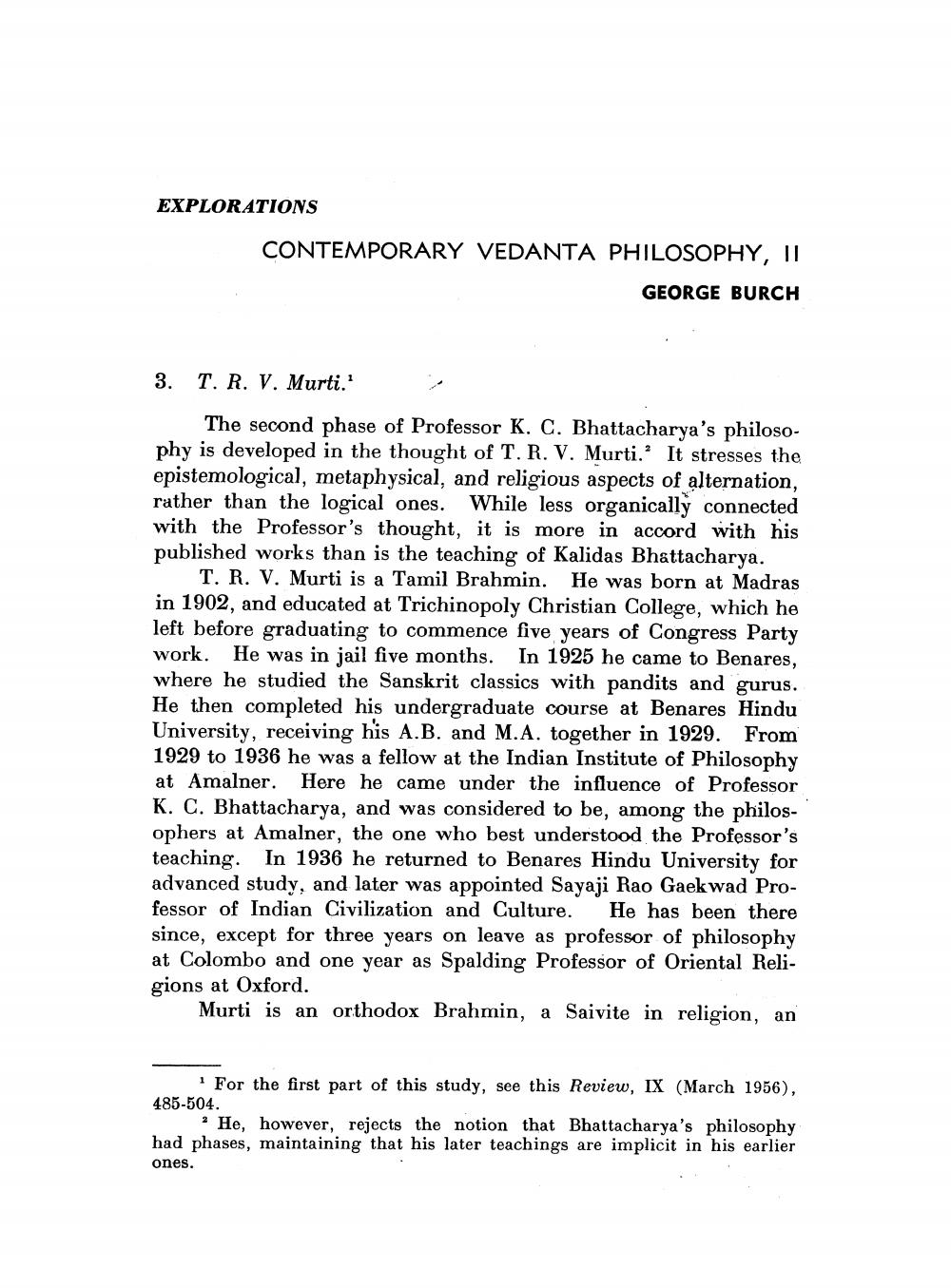Book Title: Contemporary Vedanta Philosophy 02 Author(s): George Burch Publisher: George Burch View full book textPage 1
________________ EXPLORATIONS CONTEMPORARY VEDANTA PHILOSOPHY, 11 GEORGE BURCH 3. T.R. V. Murti.' The second phase of Professor K. C. Bhattacharya's philosophy is developed in the thought of T. R. V. Murti.” It stresses the epistemological, metaphysical, and religious aspects of alternation, rather than the logical ones. While less organically connected with the Professor's thought, it is more in accord with his published works than is the teaching of Kalidas Bhattacharya. T. R. V. Murti is a Tamil Brahmin. He was born at Madras in 1902, and educated at Trichinopoly Christian College, which he left before graduating to commence five years of Congress Party work. He was in jail five months. In 1925 he came to Benares, where he studied the Sanskrit classics with pandits and gurus. He then completed his undergraduate course at Benares Hindu University, receiving his A.B. and M.A. together in 1929. From 1929 to 1936 he was a fellow at the Indian Institute of Philosophy at Amalner. Here he came under the influence of Professor K. C. Bhattacharya, and was considered to be, among the philosophers at Amalner, the one who best understood the Professor's teaching. In 1936 he returned to Benares Hindu University for advanced study, and later was appointed Sayaji Rao Gaek wad Professor of Indian Civilization and Culture. He has been there since, except for three years on leave as professor of philosophy at Colombo and one year as Spalding Professor of Oriental Religions at Oxford. Murti is an orthodox Brahmin, a Saivite in religion, an For the first part of this study, see this Review, IX (March 1956), 485-504. ? He, however, rejects the notion that Bhattacharya's philosophy had phases, maintaining that his later teachings are implicit in his earlier ones.Page Navigation
1 2 3 4 5 6 7 8 9 10 11 12 ... 19
